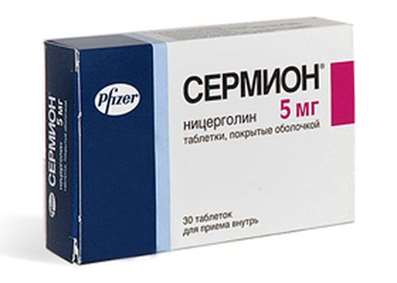Insomnia: Causes, treatment and types of insomnia
22 Oct 2016
Somnology Dr. Doping tells about acute and chronic insomnia, research methods and sleep hygiene.
One of the most frequently encountered in everyday life, and in the clinical practice of doctors sleep disorders is insomnia, or more correctly say - insomnia. Such academic name is derived from the Latin terms in - "inside" somnus - "Dream", that is "within a dream." That is, those disorders that arise due to the sleep state. Either this is difficulty falling asleep or difficulty maintaining sleep, for example, frequent awakenings, or early morning awakening, that is the end of the sleep difficulties. All this is part of the phenomenology of insomnia syndrome.
Types of insomnia
The criteria for the diagnosis of insomnia include the degree of satisfaction with sleep, as well as the availability of sufficient time and conditions for sleep. The third criterion - it is the presence of insomnia effects, that is a violation of daytime wakefulness that occurs due to sleep at night.
These disorders are quite diverse. Any sleepy person can gradually remember them all: fatigue, impaired attention, concentration or memory, disturbance interactions in society with others, mood disorders, irritability, drowsiness during the day, reduced motivation and initiative, susceptibility to errors at the wheel and at work, muscle tension , headache, gastrointestinal disorders, concern about the state of his dream. Such an abundance of complaints may be due to it poor night's sleep.
To improve brain functions one can buy Semax, Picamilon, Phenotropil and Noopept, Cerebramin and Pantogam, and for sleep Phenibut and Afobazol.
If a person has to sleep at night and daytime wakefulness, which he associates with sleep at night, can you say with certainty that he had insomnia syndrome? No, this must be done one more criterion - it is the frequency of holdings disorder of sleep. According to the international classification of sleep disorders, insomnia is a real disease when it is repeated 3 or more times a week. That is, in one week 3 nights person does not sleep well, another week - 4, the third - 5, then it is insomnia, and if 2 times - is not present.
Insomnia is divided into two types. Insomnia short-term (or more often it is called acute insomnia) - a sleep disorder that do not last more than 3 months. Chronic Insomnia - a sleep disorder that lasts for more than 3 months. This division is generally accepted, as it is believed that 3 months have a sleep disorder "off" from its root causes. The most common cause of acute insomnia becomes stressful, but it can not be the cause of chronic insomnia. At this time, the cause of sleep disorders usually are psychological mechanisms. There is excessive attention of the person to sleep, "loop" on the issue of his dream. Man begins to worry that he does not fall asleep, and this did not really sleep.
The presence of insomnia can lead to various disorders of the body work. At the household level, everyone understands that not sleep - it is bad. But the presence of health problems with insomnia confirmed by scientific research. It has been shown that patients with insomnia primarily manifest social consequences that affect other people or to the sphere of human activity. Since performance is reduced by about 2 times.
From population-based studies it is known that the presence of insomnia is associated with a greater risk of developing depression (4 times increased lifetime risk of depression in people suffering from insomnia), abuse of alcohol and drugs. Very often a person in the first place begins to resort to the available methods for improving sleep, first of all - for alcohol dependence receiving.
It also shows that insomnia increases the risk to get into a traffic accident for drivers. This is due to the effects of daytime sleep disturbances when reduced reaction speed, attention getting worse, growing sleepy, and the person becomes really dangerous to others.
The so-called medical risks of insomnia - a threat to the health of the person proved much more difficult than social risks, because social valued at the population statistics and to assess the health, it is necessary to carry out special investigations.
Hyper Activation model of insomnia
Currently, in order to explain the reasons for insomnia involved hyper-activation model. Its essence lies in the fact that people who have insomnia, hyperactivity in everything: their brains work too hard. This was shown, for example, in studies by transcranial magnetic stimulation. The man gave a stimulus to the cortical area that controls the movement of a muscle, and a strong response received from the people who suffer from insomnia than men without any disturbance. Though like those of the cortex area that was stimulated, in no way associated with sleep. They simply provide a hand movement.
Such hyperactivation observed at other levels of regulation of activity of the organism, for example, in patients with insomnia the predominance of sympathetic tone of the parasympathetic. -part Sympathetic nervous system, which is responsible for stress response, for activation and parasympathetic - on the contrary, for the rest. People with insomnia sympathetic part is always dominant, even in the daytime, and when they go to sleep, no matter in what kind of sleep, they are, in a slow or fast - their nervous system is too hyperactivation, hence the name of the model.
Endocrine levels in patients with insomnia increased cortisol secretion, with the level of this hormone, instead of declining in the evening and at night, on the contrary, rises before bed, or more precisely, before they go to bed and start to suffer from sleep disorders. This is an important hormone, showing the intensity of the stress response, also produced excessively.
Availability of hyperactivation of the nervous system is the background, it determines a person's predisposition to the development of insomnia. In addition, more must be present a provoking factor. Most often, such a factor is the emotional stress. Such cases usually occur at the level of interpersonal interactions and conflicts: people that is not shared, then excited, do not sleep, thinking what to do next. This stress response can for some time a man out of "normal sleep zone", and he for a while will sleep poorly. But then, when the stress reaction is complete, the dream is restored.
Investigation and treatment of sleep
Very good term used abroad - "memorized insomnia", ie a person teaches himself poor, makes "not to sleep." The effect of the supporting factors can cause insomnia of short, only related with the stress becomes chronic, constant, related to the incorrect behavior of man in relation to his dream. He is afraid of his sleep, and ceases to believe in him. Man tries to force himself to sleep, and this goes deeper and deeper into insomnia, then begins taking sleeping pills, it gets used to it and so on.
A separate type of chronic insomnia - paradoxical insomnia when the main problem does not occur in the dream, and in his perception, when a person does not feel his sleep. He comes to the doctor and says, "Doctor, I never sleep." The doctor says, "No, you sleep, but do not feel it." This man can not be persuaded, if not to make him sleep study.
Only the sleep study allows to clearly define how much sleep on the case of the patient and to suggest why he did not feel. The most common reason for this lies in underestimating the psychological phenomenon, when a person remembers something wonderful that happens to him in the wake of, and does not remember what happened in the dream with him. If it several times during the night and waking up, lying awake the next morning, he remembers these times. But if between them, he sank into a state of sleep, this information is not saved, and it is in the morning he did not remember – remain remembrance only of a sleepless night. Accordingly, a person would feel the absolute right, in my opinion, and we will never be persuaded, if you do not hold an objective sleep study.
Acute insomnia treated fairly simple, most often it goes away. When does the action of stress factor, a dream for most people is restored, and the doctor they do not come. Typically, patients come to the pharmacy, ask to give them something to sleep, they are given a collection of soothing herbs or medication, which contains elements of these medicinal herbs with a calming effect, and problem is solved. Sometimes they ask for something "stronger", they do not give the pharmacy because these hypnotics are dispensed only by prescription, but this requires a visit to the doctor.
With the treatment of chronic insomnia, which lasts more than 3 months, the situation is much more complicated, because very often patients suffer for years and do not receive skilled care. As a result, unfortunately, they are regular consumers of sleeping pills on the need to gradually increase the dose - this is called "habituation phenomenon" where to get the same effect requires more and more and more of the drug, first half-tablet, then the whole tablet, then two , then four, and so on.
Sleep Hygiene
For the treatment of chronic insomnia used as medicinal and non-drug technique. According to international recommendations the method of choice in the treatment of chronic insomnia are not medicinal methods. Typically, such treatment does not begin with taking the pills for chronic insomnia, and sleep changes with conditions. The doctor looks at first whether they comply very simple rules that should help to sleep. These rules are called sleep hygiene rules. This, for example, a certain time laying in bed, the ascent in the morning (so-called sleep mode). It is recommended, and for good reason that people go to bed and get up at a certain time without changing your routine. It is necessary to form a sort of conditioned reflex to sleep. The conditioned reflex, outdoor Ivan Pavlov, working in the field of sleep organization.
Sleep hygiene requirements is to ensure normal sleep environment - the bed should not be too hard, the room should not be too light, should not reach excessive noise - to be comfortable. Also, the concept of sleep hygiene includes elements of the preparation for sleep. This means that it is not necessary before going to bed to overeat, eat activating substances - alcohol, nicotine, coffee (some authors even chocolate are activating substances), in order not to counteract the sedation, which should lead to sleep. Also not recommended to actively engage in physical or mental activity before going to bed (at least one hour). Drink some GABA (Pantogam) or something else.
The concept of sleep hygiene also includes the regulation of what can be in bed and what is not. Generally, after going to bed can not do anything, except for the activity associated with procreation. Other activities are in violation of sleep hygiene, since lead to the activation of the nervous system and interfere with relaxation and zasyppaniyu. First of all the doctor looks, whether the patient complies with the rules of sleep hygiene, corrects them, and then the ability to assign the use of the so-called cognitive-behavioral therapy techniques. In general, cognitive-behavioral therapy refers to therapy section and should be done by specially trained people. However, in this case it is not about psychotherapy itself, but the use of some techniques taken from the practice.
The most well-known technique of cognitive behavioral therapy, used for sleep disorders, is a method of limiting external stimulation, when the doctor recommends to remove all irritants inciting his subjects or factors - a bright light, a ticking clock, and so on, that is, as much as possible to provide a comfortable sleeping environment . In addition to these simple recommendations in this methodology includes another very important regarding the fact whether or not to "laying" in bed at night, if you do not sleep. The patient is given a recommendation in this case up, engage in any business, but when finally appears drowsy, then go to back to bed. However, to get up in the morning he will need at one and the same time, regardless of the amount of sleep obtained. Thus, we achieve an increase in "sleep pressure" on the next evening and night, which provides a higher quality sleep.
There are other methods of cognitive-behavioral therapy, used to treat chronic insomnia. Usually, a doctor has its "arsenal" techniques that he assembles into a suitable circuit and draws it into a Memo or a brochure, which gives the patient. Such techniques are called bibliotherapy - "treatment of a book." Next, the doctor explains the contents of this leaflet to the patient, her hands solemnly, and then after some time, causing a re-appointment to trace the patient performs these guidelines or does not comply, he had enough of this method for improving sleep, or not enough.
If the cognitive-behavioral therapy does not help, it will be in effect already drugs – Phenibut, Phenozepam and so on.

 Cart
Cart





